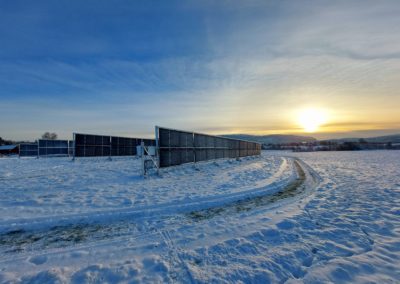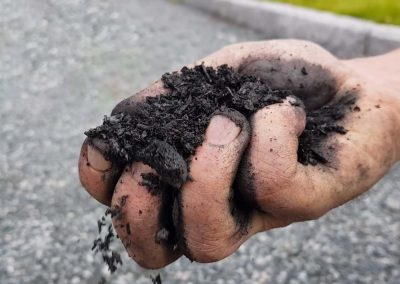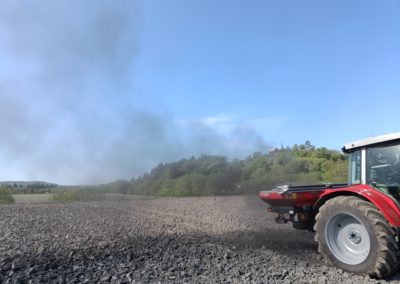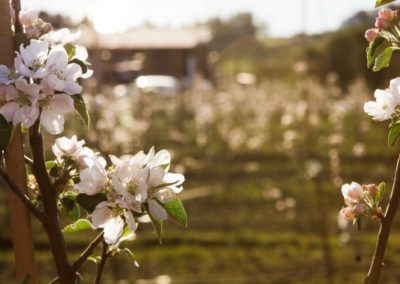Biochar is the collective term for charred biomass that occurs through incomplete combustion at high temperatures without or with little access to oxygen.
Biochar can be similar to barbecue charcoal and is made by heating organic material to 400-700 °C with little access to oxygen during so-called slow pyrolysis. Here will be approx. half of the carbon in the biomass is converted into coal, while the rest becomes bioenergy in the form of heat. Pyrolysis is a process that preserves and stabilizes the plant remains' own structure, and turns the original lignin and cellulose molecules into stable, so-called aromatic molecules with a hexagonal structure that resembles the cell walls of a board in a beehive.
In theory, all organic material can be pyrolysed, but the quality of the biochar is largely influenced by the quality of the raw material. Therefore, some types of raw material are better suited to the production of biochar than others.
Some raw materials that are both available and that can be pyrolysed without great difficulty with today's available technology are: wood chips (1-5 cm), agricultural waste such as straw and grain cleaning or solid livestock manure (e.g. horse manure with litter).
Source: Norwegian Biocoal Network
See and hear the sound of biochar:
If you want to learn more about biocoal, we recommend visiting the Norwegian Biocoal Network's website; www.biokull.info




